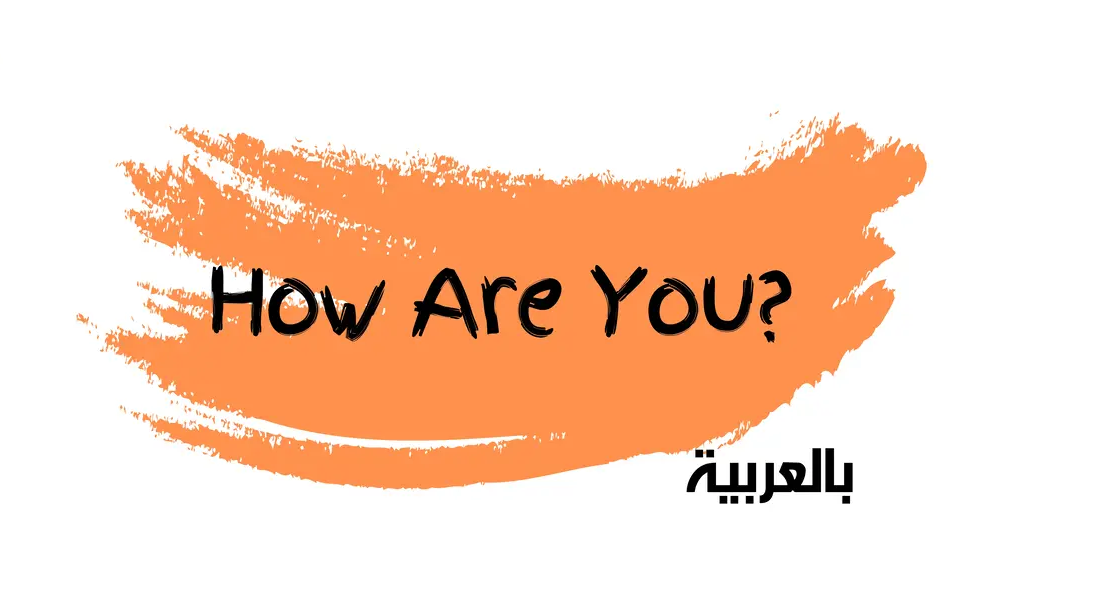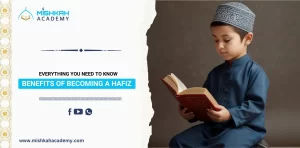How To Say How Are You In Arabic
Table of Contents
ToggleArabic is a beautiful and intricate language spoken by millions worldwide. Greeting someone and asking how they are is one of the simplest yet most meaningful ways to connect. Learning how to say “How are you?” in Arabic opens the door to meaningful interactions and deeper cultural appreciation. Whether you’re learning Arabic for personal growth, business, or religious reasons, understanding everyday phrases like this is essential.
In this article, we will explore how to say “How are you?” in Arabic, its cultural significance, and how you can confidently use it in conversations. Additionally, we’ll introduce you to Mishkah Academy’s Arabic Conversation Course to help you take your language skills to the next level.
How Do You Say “How Are You?” In Arabic
In Arabic, “How are you?” can be expressed in different ways depending on the dialect and formality of the situation. The standard Arabic phrase is:
- كيف حالك؟ (Kayfa Haluka?) for addressing a male
- كيف حالكِ؟ (Kayfa Haluki?) for addressing a female
This is the formal way of asking “How are you?” in Modern Standard Arabic (MSA), commonly used in formal settings or written communication.
In informal conversations, Arabic speakers often use shorter phrases:
- كيفك؟ (Keefak?) for males
- كيفك؟ (Keefik?) for females
When To Say “How Are You?” In Arabic
Arabs place great importance on greetings and inquiries about well-being. Here are common scenarios where you might use “How are you?” in Arabic:
- Meeting someone for the first time – A polite way to break the ice.
- Checking on a friend or family member – To show care and concern.
- Workplace interactions – A professional yet friendly way to begin a conversation.
- After someone has been unwell or absent – To show empathy and build rapport.
Cultural tip: It’s customary to listen to the response attentively, as Arabs value sincerity in such exchanges.
Reply To “How Are You?” In Arabic
When someone asks you “كيف حالك؟” (Kayfa Haluka/Kayfa Haluki?), there are several ways to respond:
- أنا بخير، الحمد لله (Ana Bekhair, Alhamdulillah) – “I am fine, praise be to Allah.”
- جيد جداً، شكراً (Jayid Jiddan, Shukran) – “Very good, thank you.”
- لا بأس (La Ba’s) – “Not bad.”
You can also ask the same question in return by saying:
- وأنت؟ (Wa Anta?) for a male
- وأنتِ؟ (Wa Anti?) for a female
This creates a conversational flow and shows mutual interest.
Join the Arabic Conversation Course
Mastering conversational Arabic goes beyond just learning phrases; it’s about gaining confidence and fluency. Mishkah Academy’s Arabic Conversation Course is designed to help learners of all levels become proficient in speaking Arabic.
What the Course Offers:
- Personalized Lessons: Tailored to your pace and goals.
- Native Tutors: Learn the authentic accent and pronunciation.
- Interactive Practice: Real-world scenarios to boost your speaking skills.
- Flexible Scheduling: Perfect for busy individuals.
This course provides the tools and techniques you need to excel in Arabic conversations, including phrases like “How are you?” and many more.
Advantages of Learning Quran & Arabic Online at Mishkah Academy
At Mishkah Academy, we combine traditional teaching methods with modern online learning to make Arabic accessible and enjoyable. Here’s why students worldwide choose Mishkah Academy:
- Qualified Tutors: Our experienced native Arabic teachers ensure top-quality education.
- Affordable Fees: Get access to high-quality courses at reasonable costs.
- Flexible Learning: Study anytime, anywhere, at your convenience.
- Comprehensive Programs: Courses in Quran recitation, memorization, Tajweed, and Arabic language.
- Cultural Immersion: Gain insights into Arab culture alongside language learning.
Join Mishkah Academy and start your journey toward fluency today.
How to Enroll
Getting started with Mishkah Academy is easy. Follow these steps:
- Visit our Website: Head to Mishkah Academy to explore our courses.
- Choose Your Course: Select the Arabic Conversation Course or any other program of your interest.
- Book a Free Trial: Experience our teaching quality with a Free Trial Lesson before committing.
- Register and Start Learning: Complete your enrollment and begin your journey to mastering Arabic.
Conclusion
Learning how to say and respond to “How are you?” in Arabic is a small but significant step toward fluency. It allows you to connect with native speakers, understand their culture, and express genuine care. Whether you’re just starting or looking to refine your skills, Mishkah Academy’s Arabic Conversation Course provides the perfect platform for success.
Join us today and take the first step toward mastering Arabic in a structured and supportive environment.
FAQs
Hello, how are you in Arabic!
“Hello how are you” is a simple yet polite greeting used by people worldwide to acknowledge one another. In Arabic, the phrase for “Hello how are you” is “Marhaba, kaifa haluka/ haluki?”. When translated to English, this means “Hello, how are you?”. Although the phrase may seem simple, it reflects the Arab culture’s emphasis on hospitality and respect towards others.
How do you say how are you in Arabic!
The phrase “Marhaba, kaifa haluka/ haluki?” is called a formal greeting in Arabic. In the Arab world, it is customary to accompany a greeting with a handshake, smile and eye contact. The culture values friendliness and taking the time to ask someone how they are doing is viewed as a sign of respect. This is why the phrase is often followed by a “shukran” which means thank you, as a sign of appreciation for asking about their wellbeing.
How are you doing in Arabic!
Language is a vital component of culture. Using a proper greeting is essential in any language, even more so in the Arab world where the language is an integral part of their traditions and values. Learning how to say “Hello how are you” in Arabic is not only a great conversation starter but it also demonstrates to the Arab people that you have an appreciation for their language and culture. Overall, greetings like “Marhaba, kaifa haluka/ haluki?” are more than just words, they embody a warm and respectful approach towards others.
Hi how are you in Arabic!
When learning the Arabic language, one of the first things you may want to know is how to ask someone how they are. In Arabic, asking how someone is, is most commonly expressed using the phrase “kayf halak” or “kayf halik”. The phrase is used in informal settings to ask someone how they are feeling or doing.
How are you in Egyptian Arabic!
“Kayf halak” and “kayf halik” are two variations of the same phrase. The only difference is that “kayf halak” is used to address a male, while “kayf halik” is used to address a female. The phrase is basically a polite way of asking someone if they are fine or okay. It is typically used as a common greeting in Arabic speaking countries and has become a common phrase across the Arab world.
How to say hi how are you in Arabic!
When asking someone “how are you” in Arabic, it’s important to note that there are other phrases that are also used depending on the Arabic dialect. For example, in Egyptian Arabic, the phrase “ezayak” is commonly used to ask someone how they are doing. Similarly, in Lebanese Arabic, you can use the phrase “shu halak” to ask someone how they are feeling. Nonetheless, using “kayf halak” or “kayf halik” will typically do the job in any Arabic speaking country.
How to say hello how are you in Arabic!
In Arabic, the most common way to say hello is “Marhaba”. This is a standard greeting used in most Arabic-speaking countries. It is an easy word to remember and quite useful in social settings or business interactions. It is best pronounced as “mahr-hahb-ah”. Usually, you will hear people greet each other by saying “Marhaba” followed by some pleasantries.
How are you translate in Arabic!
To follow up with the greeting, you can ask “Kif halak?” for “How are you?”. This phrase is widely used in the Middle-East, particularly in Lebanon, Palestine, and Jordan. It is pronounced as “kee-f hah-luk” for a male and “kee-f hah-lik” for a female. If you want to reply to this question, you can say “Ana bikhair, shukran” for “I’m fine, thank you”. You can also say “Mabsouta” which means “I’m happy” or simply “Al 7amdoulilah” which means “Thanks to God, everything is good”.
I am fine how are you in Arabic!
Learning the Arabic language’s basics is crucial if you plan on communicating with Arabic speakers. Greeting someone by saying “Marhaba” opens the conversation on a positive note. Follow up by asking “Kif halak?” to show that you are interested in the person’s well-being. When you get a response, take the time to acknowledge it and even try to continue the conversation. With these phrases in hand, you can spark a conversation and make a great first impression.
Say how are you in Arabic!
“How are you?” is a commonly used phrase in every language. In Arabic language, the phrase that is commonly used to get to know someone’s well-being is “Kaif halik?” (كيف حالك؟). This phrase can be used in formal as well as informal settings.
When translated literally, “Kaif halik?” means “How is your condition?” or “How is your state?”. It is important to note that using this phrase is a sign of good manners and respect in the Arab culture. In turn, it is also customary to reply with a polite answer regardless of one’s actual state of well-being.
How are you in Arabic language!
In addition to this common phrase, there are also other ways to ask how someone is doing in Arabic such as “Shlonik?” (شلونك؟) which is more commonly used in the Levant region. Whether you are a beginner or an advanced Arabic speaker, learning to ask and answer these phrases will help you build connections and relationships in the Arab world.






